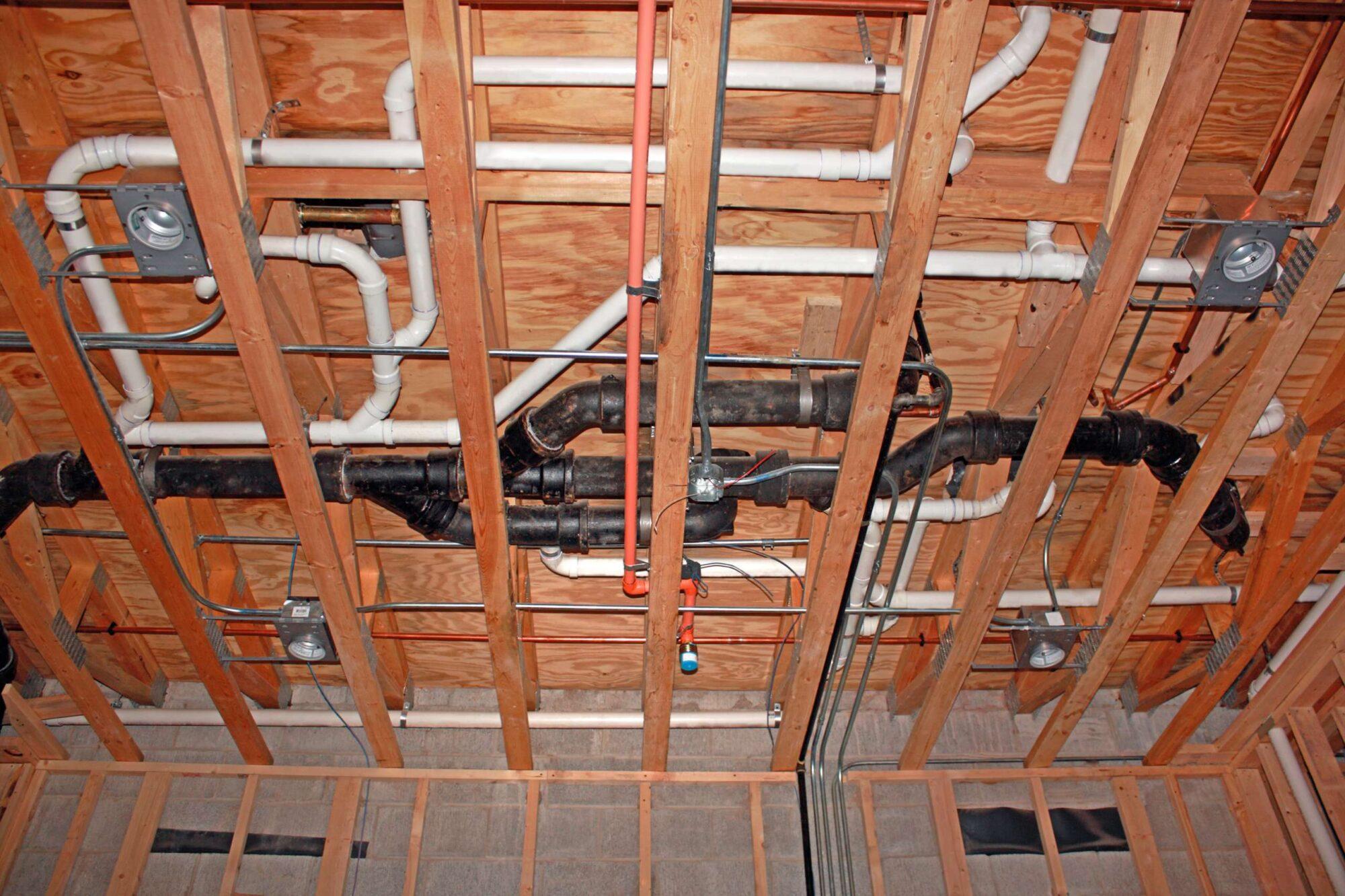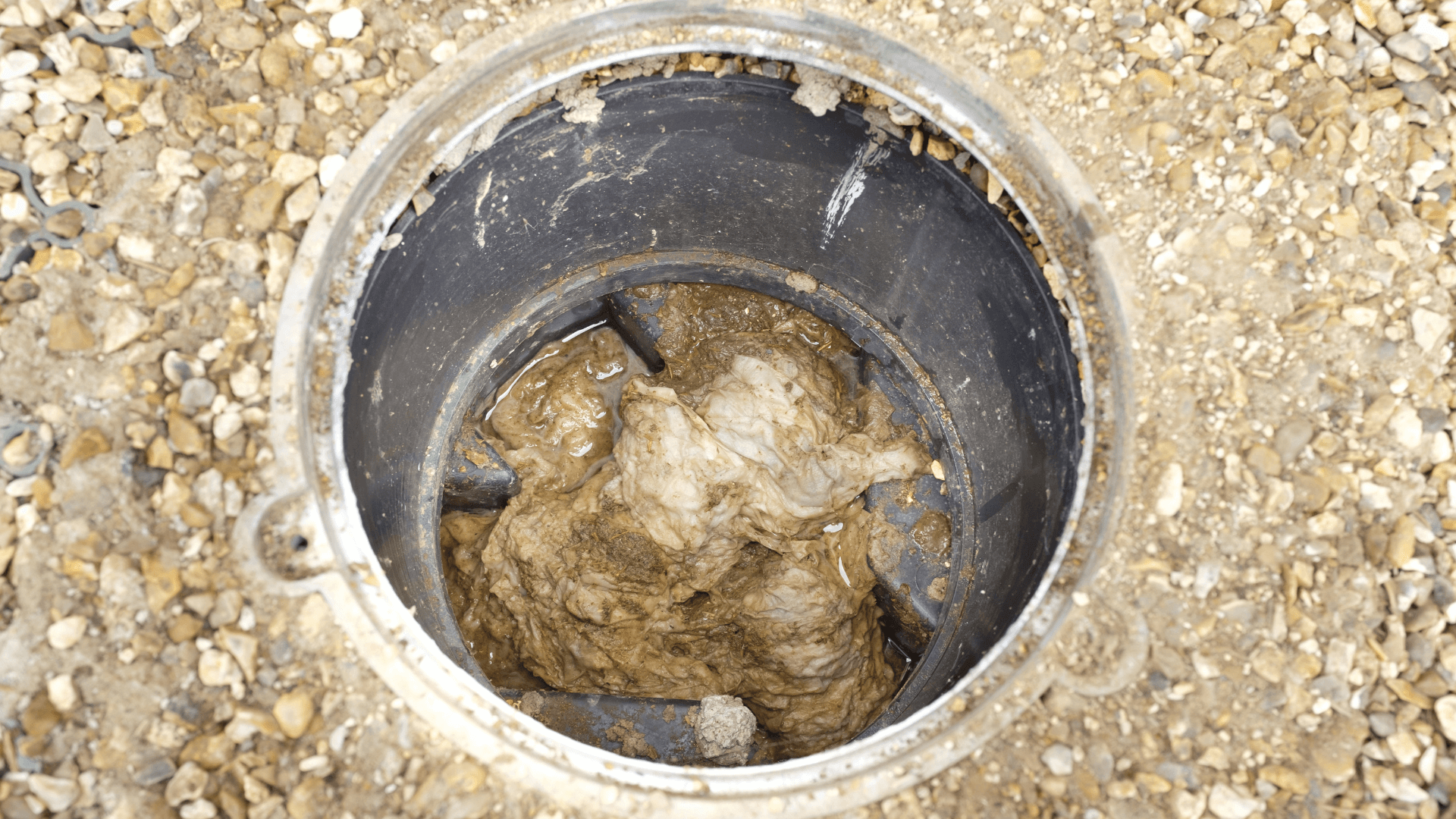As an experienced plumber working at Fergusons Plumbing, I’m well versed in a variety of challenges faced by homeowners. Particularly, I’ve noticed how the summer months can throw up their own unique plumbing issues. So, I thought it would be beneficial to share some summer plumbing tips to help you navigate these hotter months with ease.
Here’s a handy list of essential summer plumbing tips:
- Adjusting Water Pressure: High temperatures can increase pressure in your pipes, causing them to crack. Regularly check and adjust your water pressure during summer.
- Sprinkler System Inspection: Ensuring your sprinkler system functions properly can prevent wastage of water and keep your garden healthy.
- Understanding Main Water Valve: It’s essential to know how to turn off your main water valve in case of emergencies like a major leak.
- Proper Garbage Disposal Usage: During summer barbecues, be careful what goes into the disposal to avoid clogs and disruptions.
- Monitor Your Washing Machine: With more outdoor activities, washing machines are used more frequently. Regularly check hoses for bulges or leaks to avoid disaster.
- Preventative Hydro Jet Maintenance: Cleaning drainage systems with a hydro jet can help remove stubborn clogs and prevent future blockages.
By implementing these summer plumbing tips, you can ensure a smoother-sailing summer at home without any unexpected plumbing disruptions.
Maintaining Your Plumbing System in Summer
Adequate maintenance of your plumbing system is crucial not only for the wellbeing of your home but also for conserving water and energy – two valuable resources that can significantly affect our environment.
Remember to also consider downsizing your water heater temperature during summer months as water heaters can work overtime due to increased water usage.
Identifying and addressing pipe condensation is another crucial aspect to keep an eye out for, particularly in humid regions.
Last but not least, don’t forget to clean and clear your gutters regularly, especially after a storm, to prevent water buildup and potential leaks.
Contents
- Adjust Your Water Pressure
- Inspecting Your Sprinkler System
- Understanding Your Main Water Valve
- Proper Garbage Disposal Usage
- Monitor Your Washing Machine
- The Benefit of a Compost Pile
- Cleaning and Clearing Gutters
- Identifying and Addressing Pipe Condensation
- Downsizing Your Water Heater Temperature
- Checking for Leaks throughout the Home
- Managing Sewer Line Blocks
- Preventative Hydro Jet Maintenance
- Final Plumbing Thoughts
Adjust Your Water Pressure
Why should you adjust your water pressure?
Having the correct water pressure is important. Too high can result in leaks and damages, while too low can impact daily activities.
How do you know if your water pressure needs adjusting?
If water gushes out quickly or drips slowly from taps, these are signs that adjustments may be necessary.
How do you use a Water Pressure Regulator?
The Water Pressure Regulator controls the amount of water that moves through your pipes. Simplifying adjustments as needed.
Can homeowners adjust the water pressure themselves?
In most cases, homeowners can adjust their own water pressure. However, complex systems may require a professional plumber’s assistance.
When should you consider getting professional help?
If unsure about handling water pressure adjustments, it’s best to get help from a professional plumber to avoid costly errors.
Inspecting Your Sprinkler System
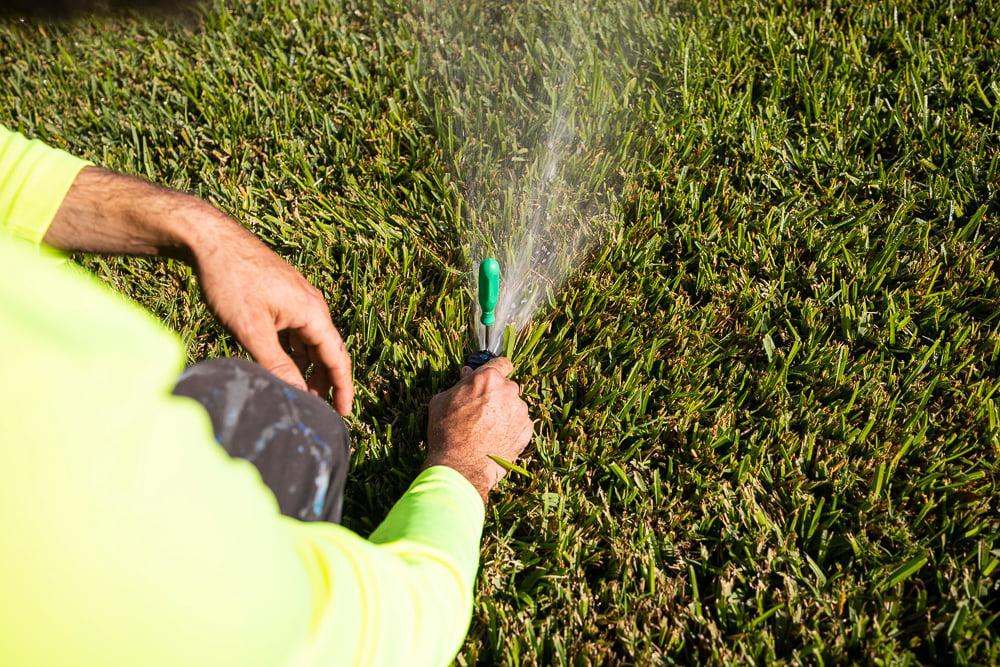
Your sprinkler system plays a crucial role in maintaining the health of your garden during summer. Regular inspections are vital to ensure its optimum performance.
Begin by checking for any observable damage to the sprinkler heads. Look out for cracks, blockages or misalignment that could affect the water distribution.
Check for Leaks
Leaks are common issues in sprinkler systems. They can lead not only to water waste but also to uneven watering and potential damage to your property.
Observe the areas around your sprinklers after they’ve run their course. Wet spots or overly saturated areas could indicate a leak.
Test Sprinkler Zones
To ensure adequate watering, test each zone independently. Make sure every part of your garden gets an ample amount of water.
If certain zones are receiving too much or too little water, adjust the system settings accordingly. Balancing is key for an efficient sprinkling system.
Maintain Regular Inspections
Regular inspections can prevent many common issues with sprinkler systems before they escalate into significant problems.
The ideal frequency for such checks depends on your specific system and garden needs. As a rule of thumb, inspect at least once every season.
Remember, a well-maintained sprinkler system keeps your garden lush and vibrant throughout the summer months.
Understanding Your Main Water Valve

Being familiar with your home’s main water valve is crucial for homeowners. It can come in handy during emergencies when you need to halt the water supply swiftly.
Locating the Shut-Off Valve
The key step involves identifying the location of the main shut-off valve. If you’re unsure, don’t fret, this information is designed to assist you.
City Supply and Your House
Water reaches your house from the local city supply. The main line feeds different locales in the city, including a separate line for your home.
Main Shut-Off Valve and Meter
Your home’s water supply features a meter and a shut-off valve before it enters your property. Although you can technically shut water off at this point, it’s often discouraged by municipalities.
The Internal Shut-Off Point
The supply continues into your property post-meter. This point should ideally have another valve close to the pressure regulator, constituting your main internal shut-off point.
If you struggle to identify this shutting point within your household, a general rule is to track along from the meter directly into the house…
Proper Garbage Disposal Usage

Bearing in mind several crucial guidelines can help you correctly utilise your garbage disposal. One rule of thumb is to avoid putting fats, oils or grease into it.
This might sound surprising, but these substances can solidify in your pipes leading to blockages. Instead, collect these in a separate container for disposal.
“Understanding what not to put into a garbage disposal can save you from unnecessary plumbing issues.”
Prior to turning on the garbage disposal, run a steady stream of cool water into the sink. It ensures the ground particles flush out properly into the sewer system.
Listen for a change in the sound of the disposal, indicating that all food waste has been ground and it’s time to switch it off.
If you run into trouble, explore solutions like how to reset your disposal before seeking professional assistance. Remember, knowledge is power in maintaining your own home.
Monitor Your Washing Machine
Monitoring your washing machine usage is essential. Not only does it conserve water, but it also guarantees the longevity of your machine. Here’s some handy advice.
The Poplin Laundry Service can be a lifeline for overloaded machines. They offer pickup, cleaning and delivery services within 24 hours, easing the strain on your home appliances.
They also cater to individual preferences, offering a selection of detergents, including hypoallergenic options for those with sensitive skin. No detergent from your end is needed; a simple order through their website or app begins the process.
Staying updated with washing machine reviews can help you save time, effort, and money in the long run. Reviewed.com rates the Electrolux ELFW7637AT as the top washing machine of 2024. Other notable brands include Whirlpool, LG, GE, and Samsung.
Choosing the right laundry detergent is another crucial decision. For those with sensitive skin, options such as Persil ProClean and Tide Original are highly recommended.
| Laundry Service | Top Washing Machine | Detergent Recommendation |
|---|---|---|
| Poplin | Electrolux ELFW7637AT | Persil ProClean |
| Whirlpool | Tide Original | |
| LG | ||
| GE | ||
| Samsung | ||
| Table: Recommended Laundry Services, Washing Machines and Detergents | ||
By monitoring the usage of your washing machine, and incorporating wise choices with services and products, you can optimise the life of your appliance.
The Benefit of a Compost Pile
Diverting organic waste from landfills through a compost pile helps preserve vital nutrients in the environment. This aids in reducing potent emissions.
By practising composting at home, you also contribute to environmental sustainability. Moreover, it reduces waste that otherwise would end up in rubbish heaps.
Composting is not as tricky as some might think; even a beginner can start a compost pile at home. It’s about combining green and brown organic waste.
Green waste involves products like vegetable peels and coffee grounds, whereas brown waste comprises dry leaves or newspapers. This mix breaks down over time, forming compost.
Compost enriches the soil of your garden, boosting its fertility. Your plants will certainly appreciate this natural fertilizer, leading to a healthier garden overall.
Always remember to balance your compost pile with equal parts of green and brown waste. A well-maintained pile won’t produce unpleasant odours.
The process is predominantly passive. Let nature take its course once you’ve set up your compost pile correctly. You just need occasional turning to aid decomposition.
If you encounter any plumbing issues related to your composting, don’t hesitate to reach out for professional help. A plumber can provide practical solutions tailored to your specific needs.
Cleaning and Clearing Gutters
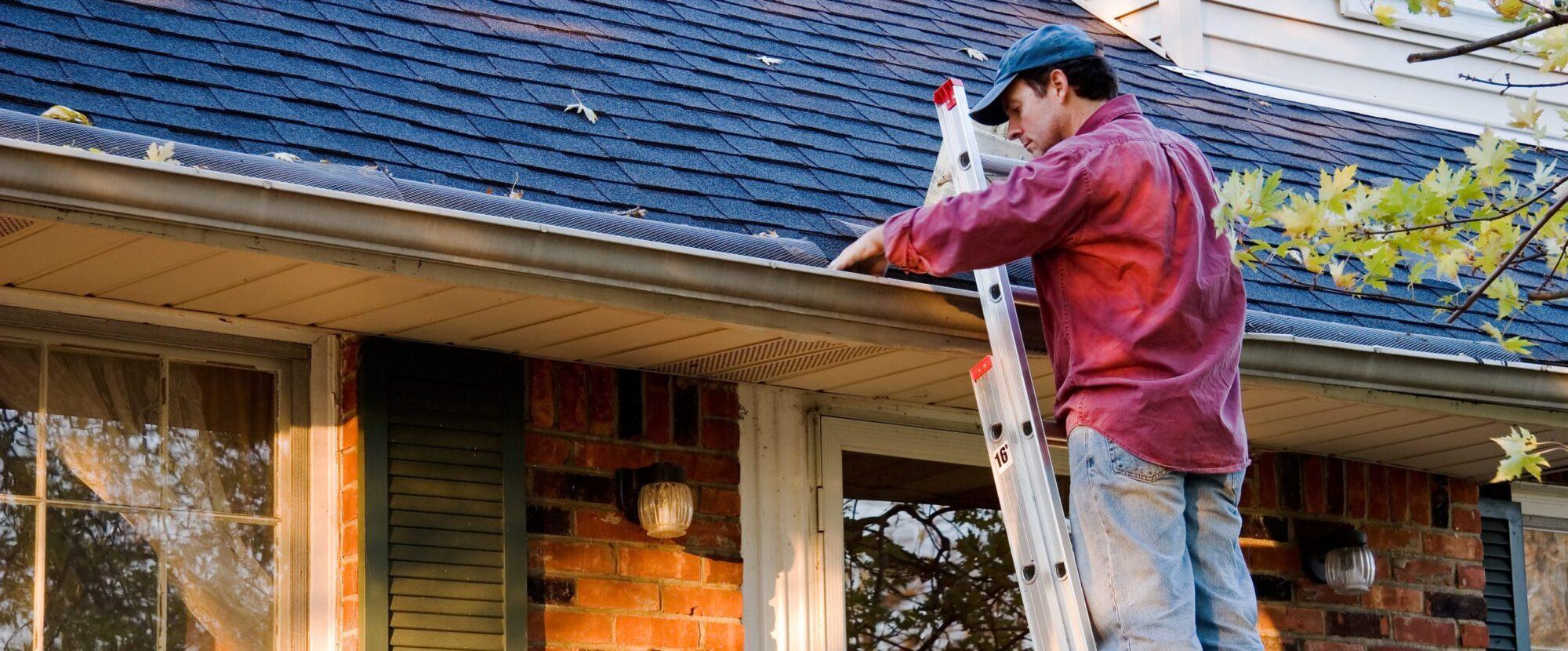
When it comes to maintaining your home, regular gutter cleaning is essential. Leaving your gutters unattended can result in severe damage, especially during the summer months.
Your gutters serve as a drainage system for your rooftop. Over time, they can become clogged with leaves, dirt, and other debris.
A clogged gutter can cause water to overflow, potentially damaging your home’s exterior and interior. Additionally, the standing water can become a breeding ground for mosquitoes.
- Regular inspections: It’s crucial to check your gutters for blockages regularly. By doing so, you can prevent major issues before they occur.
- Proper cleaning: Keeping your gutters clean is not just about removing visible debris. You must also ensure there is no buildup or obstruction within the downspouts.
- Hire a professional: If you aren’t comfortable doing this task yourself, consider hiring a professional plumber who is experienced in gutter maintenance.
- Safety precautions: Always ensure safety measures are taken when performing this task. This includes using appropriate equipment and clothing.
If neglected, a rogue gutter could potentially ruin an important event in the home. Remember Sally Fitzpatrick from Footscray? Her party would’ve been cancelled due to a flooding issue caused by clogged gutters.
She praised her plumber for their fast service. It is necessary to understand that speed and quality service does matter.
Take it from David of Patterson Lakes as well – “fast, no-fuss service” with the job well done. So, why not avail of such services for peace of mind?
To conclude, maintaining clear gutters is not only about preserving your home’s aesthetic appeal. It also helps protect against costly damage. So, remember to keep your gutters clean and clear.
Identifying and Addressing Pipe Condensation

The temperature of your water can play a crucial role in the wellbeing of your plumbing system. One significant hazard is pipe condensation, especially during summer.
One important fact to consider is that water heated at 60ºC can pose a scalding risk. While dishwashers without embedded booster heaters may require water within a range of 55ºC to 60ºC for optimum cleaning, this high temperature can provoke pipe condensation and increase the risk of scalds.
If your immune system is compromised or you have chronic respiratory disease, you might consider keeping your hot water tank at 60ºC. Despite this, remember that this high temperature significantly increases scalding risk.
- Install temperature-regulating devices: These can be installed on any taps used for washing or bathing to regulate water temperature.
- Check your dishwasher’s settings: If it has an inbuilt heater, utilise this feature instead of super-heating the water supply.
- Maintain regular checks: Regular checks on your plumbing system can help identify potential condensation issues early.
- Professional help: If in doubt, consulting with a professional plumber can provide tailored solutions.
Safeguarding yourself and your home from piping issues is essential. These tips will help you identify and address pipe condensation effectively.
Downsizing Your Water Heater Temperature
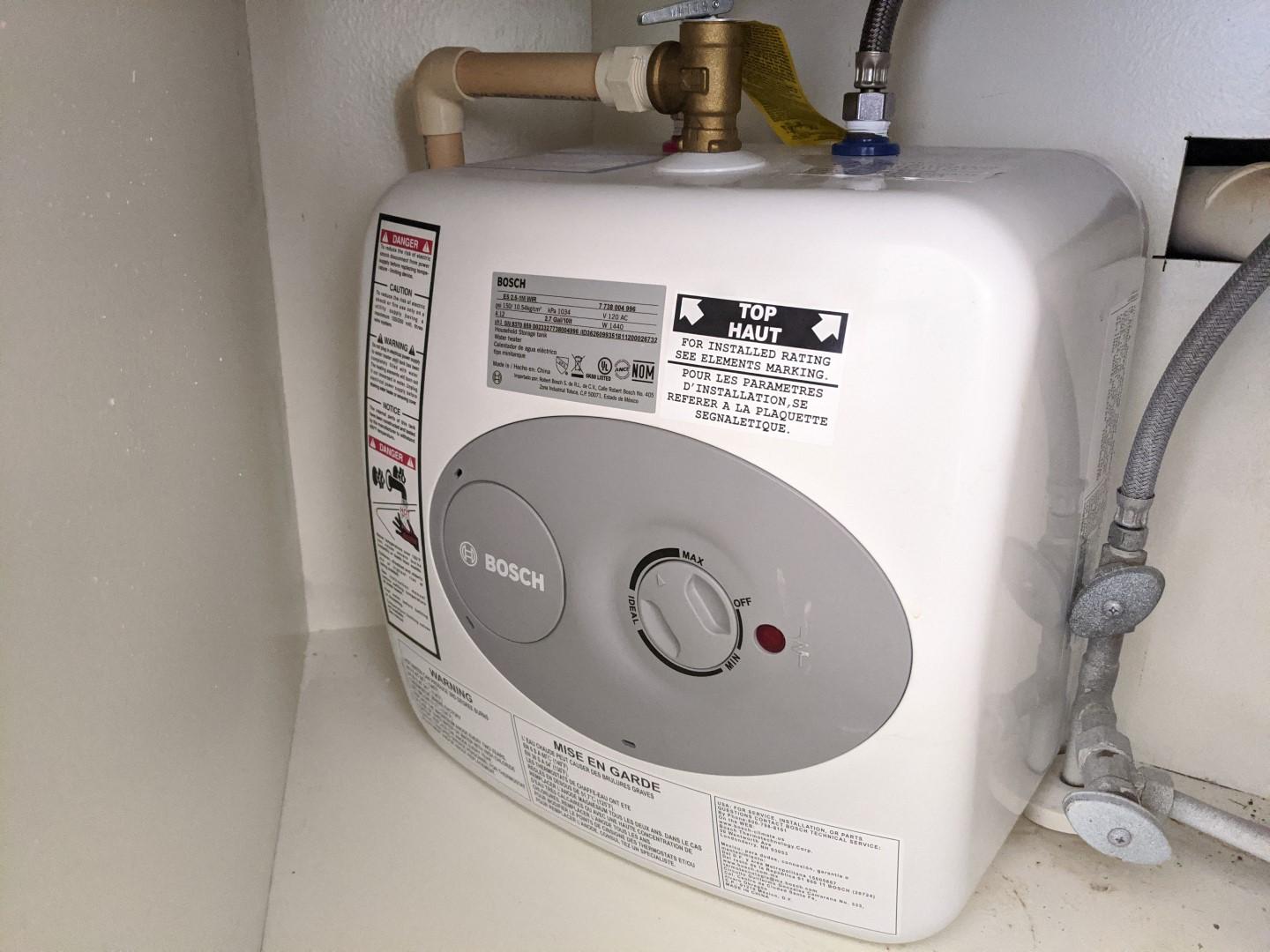
In the sunny season, a slight decrease in your water heater’s temperature should be considered. This helps prevent accidental scalds and reduces energy consumption.
A lower setting, around 120 degrees Fahrenheit (or 48.9 degrees Celsius), is generally recommended during the summer months. This not only enhances safety but also results in noteworthy savings on your energy bill.
- Locate your water heater’s thermostat: Mostly, it’s a dial on the tank.
- Check the current temperature setting: It may well be higher than required.
- Reduce the temperature: Dial down to around 48.9 degrees Celsius for optimal summer use.
No special tools are needed for this quick fix, it’s a straightforward task you can handle yourself. Always remember to turn off the power supply prior to adjusting any settings for safety purposes.
If you encounter difficulties, don’t hesitate to contact a professional. Unresolved issues could lead to more severe problems like inefficient heating or even leaks.
Your comfort and safety are paramount, hence, never overlook regular maintenance of your plumbing system. If you notice persistent issues despite your adjustments, seek expert intervention by reaching out to a certified plumber.
Checking for Leaks throughout the Home

Summer brings many joys, but it can also exacerbate plumbing issues. Notably, elusive leaks. Careful inspection of your home is vital.
Start by checking your main water line. If you notice an unusual increase in your water bill, it may indicate a hidden leak.
Another potential trouble spot is your bathroom. Regularly check taps, showers, and toilets for any ongoing drips or sudden spikes in water usage.
Kitchens are equally prone to leaks. Check under the sink and around appliances like dishwashers and fridges for signs of moisture or mildew.
| Type | Symptoms | Action |
|---|---|---|
| Main Line Leak | Inflated Water Bill | Contact Plumber |
| Bathroom Leak | Dripping Taps/Showers | Tighten Taps/Replace Washers |
| Kitchen Leak | Mildew Under Sink | Clean Area/Check Pipes |
| Appliance Leak | Water Around Appliances | Inspect Hoses/Connections |
| Remember, any doubts, call a professional immediately. | ||
A handy guide for identifying common household leaks and their solutions. Remember to consult a professional if unsure.
Managing Sewer Line Blocks

Space-saving efficiency is a big appeal of tankless water heaters. If yours needs repair, sorting it promptly can prevent significant problems down the line.
The kitchen sink can be made even more useful with the addition of unique features. Enhancements are a fantastic way to optimise your kitchen plumbing.
Dish soap versus baking soda: both have uses in drain clearing, but it’s essential to understand their differences for optimal results.
A practical and effective solution like a porta throne can elevate any event, not just meeting basic restroom needs but enhancing the overall experience.
Regular plumbing maintenance is vital, even if it’s often overlooked. It’s a wise investment to prevent major plumbing issues from cropping up unexpectedly.
- Australian homes use hundreds of gallons of water daily. Efficient plumbing fixtures save time and money.
- Cold weather risks include frozen pipes. Learn the preventative methods to dodge this problem.
- Certain habits can lead to plumbing issues. Being aware of these and changing them can make all the difference.
- Toilet flushing issues can be annoying. Understanding the causes aids in quick fixes.
- Frequent water heater problem? Awareness and timely solutions can prevent a full-blown crisis.
In short, looking after your plumbing isn’t just about fixing problems when they happen. It’s about preventative measures, regular maintenance, and understanding how things work.
.
Preventative Hydro Jet Maintenance
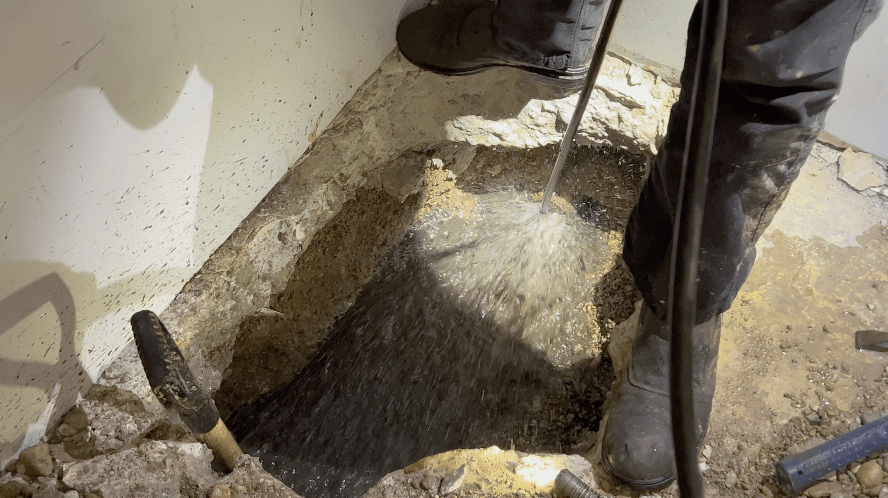
A fundamental part of looking after your hydro jetter involves routine inspections. Aim for a minimum of one per year to ensure optimum performance.
Each time you operate your hydro jetter, check the condition of your hoses. Any signs of damage could pose a risk.
Your water filter bowl and mesh filter should be clear of debris. A blocked filter could hinder the effectiveness of your hydro jetter.
Prior to each use, inspect the oil levels for both pump and engine. An oil deficiency can cause needless wear and tear.
Monthly and Annual Checks
Approximately every 30 hours, inspect the pump mounting and adjustment bolts. This keeps the belt secure and prevents shredding.
Nozzles wear out with use, leading to less efficient jobs. Regular checks will pick up early signs of degradation.
An annual review should include an inspection for any cracks in the frame. These could compromise the effectiveness of your hydro jetter.
Maintaining High-Pressure Hydro Jetters
For high-pressure hydro jetters, regular inspections are crucial. Check before every use and annually for cracks and other component issues.
Protective gear is essential when working with these machines. Always inspect hoses for potential faults prior to use.
Signs You Need Hydro Jetting
If you start noticing slow drains or recurring clogs, it might be time for a hydro jetting service. A lingering unpleasant odour could also indicate a need for cleaning.
The frequency of cleaning depends on usage patterns, type of debris, age of plumbing system and previous plumbing issues. Keep a close eye on these factors to prevent problems from escalating.
Occasional maintenance tasks include changing fluids and filters, greasing axles, bearings and engine stub shafts, and examining hydraulic oil and selectors.
It’s also essential to inspect engine belts for wear and check the frame for fatigue. Clean nozzles regularly for optimal performance.
Final Plumbing Thoughts
Keep your Australian home’s plumbing functioning smoothly this summer by following these tips. Regularly check for leaks, ensure your gutters are clean to prevent blockages, and avoid putting hard food waste down the drain. By staying vigilant about these simple tasks, you can avoid costly plumbing issues and keep your water flowing freely.








